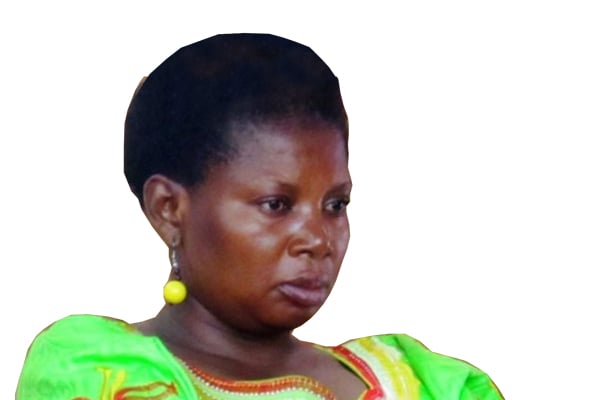Prime
That salon woman in Nakawa needs support and the UN stands with her
What you need to know:
- Giving back hope. The $324.7 million UN Emergency Appeal to Respond to Covid-19 and its impact in Uganda will alleviate the dilemma of 12 million people, including of mothers who ordinarily travel into urban centres to sell goods to customers yet can no longer leave their neighbourhoods due to travel restrictions, resulting in devastating loss of income for their families.
Her name is Rahma. She owns a tiny hair salon along a main road in the centre of Nakawa Division, east of the capital
Kampala. Every morning she would wake up early to get her children ready for school and then she would head to her salon to set up the day’s customers.
Her salon was not the busiest in Uganda’s bustling capital city, but the small earnings she made from braiding and styling women’s hair in her neighbourhood was enough to feed and clothe her children and pay their school fees. That was before Covid-19.
On March 21, Uganda confirmed its first case of Covid-19 and since then cases have been on the rise. To contain spread of the deadly virus, the Government of Uganda, like many around the world, mandated strict
lockdown measures to ensure the safety of its residents and the refugees it hosts.
The unprecedented health threat of Covid-19 pandemic, the likes of which the world has not seen in over 100 years, has severe implications on vital systems and on the lives of the most vulnerable people in Uganda. While the health effects of the disease are clear, however, the unintended consequences of the pandemic are just as dangerous.
Mothers who ordinarily travel into urban centres to sell goods to customers can no longer leave their neighbourhoods due to travel restrictions, resulting in devastating loss of income for their families. Refugees and asylum seekers living in cramped spaces are now sitting ducks for the possible spread of the virus.
People with existing chronic health conditions may be forced to wait longer than usual for lifesaving care as scarce healthcare resources are diverted to the Covid-19 response, putting them at greater risk.
The protection of children, particularly girls and young women, is compromised the longer they are out of school as they are exposed to the possibility of child marriage, exploitation and teen pregnancy.
Unprecedented times call for unprecedented measures. Thus, it is upon this background that the UN, in partnership with Government of Uganda, NGOs and Uganda Red Cross Society, have developed the $324.7 million UN Emergency Appeal to Respond to Covid-19 and its impact in Uganda targeting 12.8 million people.
The UN Appeal is a multi-sectoral plan to complement the government’s Covid-19 preparedness and response plan from April to September, focusing on the direct mitigation and response to the outbreak.
This emergency appeal will address the impact of the pandemic on vulnerable Ugandans, including the elderly, disabled, women and girls, refugees, migrants and those displaced by natural disasters. Immediate interventions
for the next eight weeks will be prioritised as urgently required to mitigate against immediate effects of the crisis and are presented alongside interventions that address longerterm impacts over the next six months.
The appeal involving 15 UN agencies, eight international and 11 national NGOs will focus on five thematic areas: healthcare, food, nutrition and income generation; social services; refugees and displacement, and reinvigoration
of the economy and digital innovation.
Agencies involved in the appeal will provide continuous quality healthcare for people living with chronic health conditions such as HIV and TB, while maintaining critical services around reproductive health and response to
sexual and gender-based violence. We will support the Ministry of Health through the national surveillance systems, ensuring early detection, isolation, confirmation and effective case management.
As maintaining people’s access to nutritious food and income generating activities is critical to combating the effects and spread of Covid-19, humanitarian and development agencies will assist government in maintaining food distributions for refugees with safety measures in place.
We will create public and private community food banks and government-regulated market control frameworks to avoid inflation of food prices.
Uganda hosts 1.4 million refugees – the world’s third largest – and has one of the world’s most progressive refugee policies. We must safeguard the massive gains made by this policy throughout the lifespan of this outbreak,
while investing in community engagement activities to spread awareness about the virus in refugee communities, particularly among women, children and the disabled. We want to provide short-term microgrants to distressed farmers for agribusiness to help sustain Uganda’s local food production and construct latrines and handwashing
facilities in homes and schools where people have had to displace from districts prone to landslides. Poor people living in urban centres will need services like cash transfers and grants for micro- and small enterprises.
Uganda’s developing economy will need a jump-start once the outbreak is contained so supporting e-Payment platforms for utilities and providing small and medium enterprises with tools and skills to maintain business continuity
throughout the outbreak and beyond.
This historic appeal is an ‘all hands on deck” approach – the first of its kind in over 20 years is our way of supporting the millions of people like Rahma across Uganda.
With the support of development partners and the international community, the appeal will enable the UN and its partners, development and humanitarian agencies and Uganda Red Cross to strengthen and complement these efforts of the Government.
The potential of the men, women and children of Uganda and the refugees they host should not be compromised by this awful disease. We can and we must fight this for the future of this country, this region and this continent.
Ms Malango is the UN Resident Coordinator
@RMalango2015




